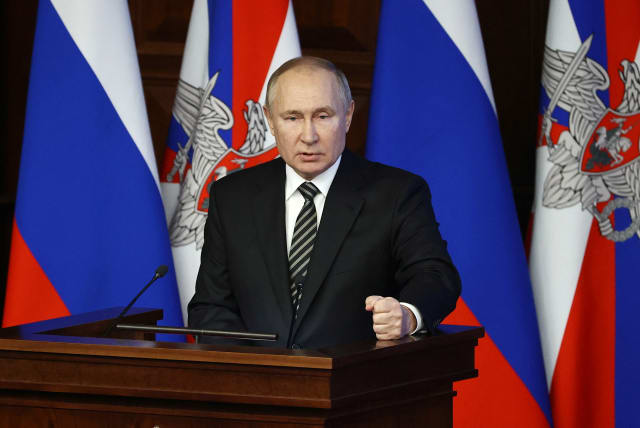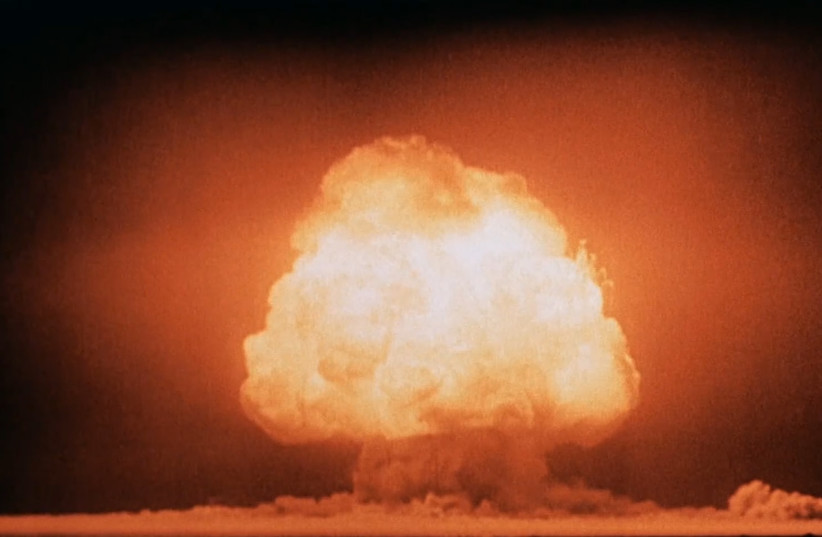We are facing a new-old era in the Cold War - opinion

Sixty years after the Bay of Pigs crisis in Cuba, the world is slowly reentering a path of nuclear conflict.
‘Those who do not learn from history are doomed to repeat it” (Winston Churchill).
Sixty years after the Bay of Pigs crisis in Cuba, the world is slowly reentering a path of nuclear conflict. Sixty years ago, when the world was still licking its wounds afflicted by the horrors of World War II and remembered the power of atomic weapons that had been used for the first time, the threat was real and powerful.
Since then, however, it seemed that the era of world wars was over. And here we are at it again, facing a real war, as before: Russia, the leader of the East, is fighting Ukraine, which is supported by the West.
In recent decades, the prevailing opinion has been that no one will use nuclear weapons anymore. There are enough nuclear weapons to destroy the universe a hundred times over.
If Russia attacks the US, the US will destroy Russia and vice versa. The balance of deterrence seemed to make nuclear weapons unnecessary. Nuclear war seemed imaginary.
What does the public think that Putin will do?
In terms of narrative and public opinion, Western leadership faces significant challenges. First, it has to convince the public that Vladimir Putin will use nuclear weapons. Second, it needs to prepare the ground for a nuclear counterattack. It is difficult to convince that Putin is indeed serious about it. The average Western person looks at Russia’s conduct and says that Putin is an enemy. Still, he thinks that Putin is just playing a game, and that he just enjoys threatening and saying empty words, in order to attract attention.
Yet, when the moment of truth comes, he wouldn’t dare. He understands the consequences. He wants to keep his regime. Admittedly, we didn’t think he would invade Ukraine, which in the end, he did. But he must have learned from that mistake. He won’t really use nuclear weapons.
These arguments are convincing. People want a good life. They want to eat in restaurants and go on vacations, not thinking about a world that is going to be destroyed.
It is easy to buy most people with such soothing arguments. Ninety-nine percent of the cases are also correct. The same holds true for the argument that Putin will not dare. But what if the one percent prevails? Are we ready to meet this challenge? Most importantly, how can we convince people that an apocalypse is on the horizon?
Social media changed the world
Western leaders do not understand that the world has changed.
Instead of using social media to speak to the public, they use speeches at conferences. But those reach, at best, 10 percent of the population. They don’t understand that their mission is like Apple’s. Instead of providing each person with a phone in his hand, the severity of the nuclear threat must reach every person’s mind.
The ’90s are over. Making statements on CNN is not as effective. When it comes to the production of spins, Russia is doing better.
The messages to the public must be made with moral clarity. Let us take the following example: Suppose Putin uses tactical nuclear weapons in a small explosion, maybe in a “dirty bomb.” The West will be in a dilemma. Should we respond with atomic weapons too? And if so, where? Should we strike Russian military bases? What about the Kremlin? Maybe strategic facilities? But then, harming civilians is against Western principles.
So how do you use nuclear weapons without harming civilians? And if nuclear weapons are used, are the citizens of the West prepared to face the devastating consequences? And if not, wouldn’t that encourage Putin to use this means time and again, assuming that the West will not strike back? Where should we draw the red line? Didn’t Western leaders once say that the very use of nuclear weapons is the red line? Is it still a red line? If the leaders are confused, the public is all the more so.
The leaders of the Western world are beginning to understand that they are in trouble. And their problem is, first of all, to get the public to follow their leadership. What was imaginary until a year ago, is real today. They need to formulate a strategy for what they are doing and, above all, explain it to the public before it is too late.
Even though such a strategy still sounds insane, the madness is already here and we must prepare for the worst-case scenario. For this, there is a need for good professionals. A good speaker who knows how to talk to journalists is not necessarily someone who knows how to reach out to the thoughts and emotions of hundreds of millions. We are facing a new-old era in the Cold War, the nuclear era.
It’s time to wake up.
The writer is founder of www.perception.media, a strategic adviser and creative director to world leaders
Jerusalem Post Store
`; document.getElementById("linkPremium").innerHTML = cont; var divWithLink = document.getElementById("premium-link"); if (divWithLink !== null && divWithLink !== 'undefined') { divWithLink.style.border = "solid 1px #cb0f3e"; divWithLink.style.textAlign = "center"; divWithLink.style.marginBottom = "15px"; divWithLink.style.marginTop = "15px"; divWithLink.style.width = "100%"; divWithLink.style.backgroundColor = "#122952"; divWithLink.style.color = "#ffffff"; divWithLink.style.lineHeight = "1.5"; } } (function (v, i) { });

